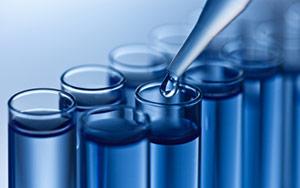FAQ - Custom Antibody Development

What species should I use?
In many cases rabbit antibodies are usually the first choice for polyclonal antibodies, however other species should be considered. When looking for larger amounts of antiserum it may be more beneficial to use antibodies from a larger animal such as sheep antibodies or goat antibodies. It is beneficial to use chicken antibodies as a host species when using mammalian antigens especially those that are highly conserved. We also now provide services in llama antibodies, which are a more affordable alternative to monoclonal antibody production.
How many animals should I use?
We suggest you use at least a minimum of 2 animals per project. This will allow for the fact that there is often variability of immune response between individual animals. This will increase your odds of getting a highly reactive and specific antibody to your protein of interest.
How much antigen is needed for my project?
Typically about 2.5mg is needed for the standard protocol for 2 rabbits/chickens or 1 goat/sheep/llama. We prefer that the concentration be a minimum of 1mg/ml if possible.
Do I need to conjugate my immunogen?
Conjugation makes the immunogen more immunogenic by making it physically large enough for the immune system to recognize it. We recommend that small peptides (less than 15KD or less than 25 amino acids) be conjugated. During conjugation your peptide is attached to a carrier protein making for a larger and more immunogenic molecule that is coated with your peptide. The larger molecule allows the immune system to recognize it easier. We have great success using keyole limpet hemocyanin (KLH). Other good carrier proteins are bovine serum albumin (BSA) and ova albumin (OVA).
What concentration of antibody can I expect?
Generally there will be between 5-10mg of IgG in each ml of serum.
How should I store my antiserum?
Serum can be stored at 4°C for up to 3 weeks after that it can be stored frozen at -20°C for several years. For longer term usage you can add 0.05% azide to your samples as a preservative. Purified antibodies are most stable when stored at -80° C. In all cases your antibodies should be stored in working aliquot sizes to avoid freeze thaw cycles.
Does my antiserum need to be purified?
Not in all cases. The main reason for purification is to remove any non-specific staining or multiple bands on Western Blots. Another reason for purification is to concentrate the antibody to increase signal strength.
What kind of purification should I perform?
Traditionally, an affinity purification against the antigen is the purification of choice. The end result is an extremely clean antibody. Like most things, there is a catch though. Sometimes some of the most highly avid antibodies may not detach from the affinity matrix, thus they cannot be recovered. One may also want to consider purifying against protein A or G as many times these will prove sufficient.
Still have questions?
Contact Capralogics
Place an order using our custom antibody development order form


